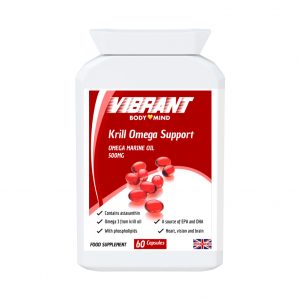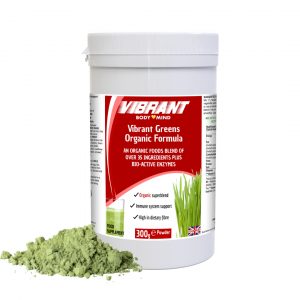Omega-3 fatty acids seem to be lacking in patients with certain psychiatric diseases, so the scientists suggest fish oil could also be used therapeutically in depression.
For 2020, the World Health Organization estimates that depression will be the second most common disease worldwide. Eating fish regularly, and especially fish oil, can increase the effects of antidepressants and the response rate to some of these drugs for depression, scientists say.
Patients suffering from severe depression are usually treated with so-called serotonin reuptake inhibitors. These unfold their effect directly on the serotonin transporter and increase the serotonin concentration in the tissue fluid of the brain. The problem, however, is that about half of the patients affected by depression do not respond or do not respond sufficiently to precisely this treatment.
Consuming high-fat fish and fish oil can help with the effects of antidepressants and the treatment of depression. Dutch scientists recently claimed this in the course of a published study.
Depression changes the fatty acid metabolism
The scientists investigated the connection between depression and the fatty acids and stress hormones present in the blood, including the well-known stress hormone cortisol.
The aim of the study was to identify biological processes that are associated with depression or with the reaction to antidepressants. The researchers combined two apparently unrelated parameters: fatty acid metabolism and the regulation of stress hormones.
Notably, the researchers found changes in fatty acid metabolism in depressed subjects. These altered metabolic processes were in turn under the influence of the stress hormones.
In the course of the study, the scientists also compared the fatty acid and cortisol levels of 70 patients with and 51 without depression. The subjects suffering from depression received 20 mg of a serotonin reuptake inhibitor 6 times a week. If a patient showed no response to this treatment, the dose was gradually increased up to 50 mg/day.
Effect of antidepressants in fat metabolism
The investigations revealed that patients who suffered from severe depression and did not respond to the administered serotonin reuptake inhibitor also had abnormalities in relation to fatty acid metabolism.
Based on this observation, the nutritional behavior of the individual subjects was also examined. Since high-fat fish have a high fatty acid content, the fish consumption of the individual subjects was of great importance.
It was interesting that subjects with the lowest consumption of fish responded least to antidepressants, while subjects with the highest consumption showed the best response to the medication.
Participants with depression who ate fish at least once a week had a 75 percent chance of responding to antidepressants.
In subjects who never consumed fish, however, this figure was 23 percent.
Are fish oil and the effect of antidepressants connected?
In any case, recent results show a connection between fatty acids in fish and fish oil in the blood and the response to antidepressants. To date, however, one cannot speak of a causal relationship.
It is now necessary to find out to what extent the changes in fatty acid metabolism and hormone activity that we have observed are specific to depression. Therefore, the measurements are now being repeated in patients with post-traumatic stress disorder and schizophrenia.
“Why certain patients respond poorly or not at all to serotonin reuptake inhibitors remains unknown. However, the connection between high-fat fish and certain health parameters has long been an interesting aspect. The current study suggests that this could also be relevant in relation to depression, namely that fish or fish oil can actually increase the effects of antidepressants,” says Professor Guy Goodwin from the University of Oxford. “Further studies are definitely of great interest.”
Can fish oil be used as antidepressant?
While fish oil cannot replace pharmaceutical drugs when it comes to major depression, there are more studies and observations that support the use of fish oil and omega-3 fatty acids in depression treatment.
In countries with high fish oil consumption, doctors are less likely to diagnose depression than in countries where fish consumption is low (1).
You will find links to the research at the end of this article.
In addition, the blood level of depressive patients shows reduced values of eicosapentaenoic acids, and functional disorders in the metabolism of unsaturated fatty acids were also found in them (2).
Decreased levels of unsaturated fatty acids have been localized in red blood cell membranes or in plasma (3).
Deficits of unsaturated fatty acids have also been observed in other psychiatric disorders. A lack of arachidonic acid, eicosapentaenoic acid (EPA) and docosahexaenoic acid (DHA) has been demonstrated in schizophrenia, and a lack of EPA and DHA in depression (4).
In the cell membranes of depressed patients, the total omega-3 fatty acid content, especially that of DHA, was significantly reduced compared to healthy people (5). An epidemiological study of a cohort of 380 women found that a 1% increase in plasma DHA was associated with a 59% reduction in documented depressive symptoms (6).
Why fish oil is effective for depression?
These research results suggest a clinical effectiveness of omega-3 fatty acids in psychiatric disorders such as depressive disorders. However, a clear mechanism for this possible antidepressant effect has not yet been proven. It is assumed that effects of omega-3 fatty acids on interleukins or prostaglandin E2 could contribute to an antidepressant effect.
Use of fish oil in major depression
In an eight-week, placebo-controlled, double-blind study (3), 28 patients with major depression received omega-3 fatty acids (6.6 g per day) in addition to their previous therapy. The omega-3 fatty acid therapy significantly improved the symptoms measured using the Hamilton Rating Scale for Depression (HRSD) compared to placebo and was also well tolerated by the patients.
Bipolar disorders also improved by fish oil
Omega-3 fatty acids are believed to inhibit neuronal signal transduction pathways in a manner similar to lithium or valproic acid, two effective therapeutics in the treatment of bipolar disorder. In a four-month double-blind study, Stoll and colleagues investigated whether omega-3 fatty acids can stabilize mood in the therapy of bipolar disorders (7).
Scientists compared omega-3 fatty acids (9.6 g per day) with placebo (olive oil) in addition to standard therapy in 30 patients with bipolar dysfunction. Using the Kaplan-Meier analysis, they were able to show that patients taking omega-3 fatty acids had a significantly longer remission than those taking placebo.
The well-tolerated omega-3 fatty acids also achieved better results than placebo with regard to other study parameters.
Fish oil in unipolar disorders
An ester of eicosapentaenoic acid has been studied as an adjunctive therapy in patients with unipolar depressive disorders (1).
During one study, twenty patients, including 17 women, diagnosed with major depression took part in this four-week, double-blind, parallel-group study. The patients also received the EPA ester or placebo in parallel with the antidepressant medication. From the second week, the ester significantly improved depressed mood, feelings of guilt and inferiority, and insomnia.
Fish oil in treatment-refractory patients
70 patients who suffered from persistent depression despite antidepressant therapy received randomized, double-blind, and placebo-controlled 1, 2, or 4 g EPA ester (ethyl eicosapentanoate) per day for 12 weeks in addition to their antidepressant therapy (2).
Patient status was assessed using the HRSD, the Montgomery-Asberg Depression Rating Scale, and the Beck Depression Inventory. Forty-six of the 52 patients who received ethyl eicosapentanoate and 14 of the 18 patients who received placebo completed the 12-week study. Serious side effects did not occur.
How much fish oil actually makes a difference?
Interestingly, only the 1 g dosage was able to achieve a significantly better result in all three rating scales compared to placebo. In an intention-to-treat evaluation, 29 percent of the placebo group and 53 percent of the 1-g group reduced their symptoms by half.
Important: Omega-3 fatty acids may be ineffective in major depression
It’s important not to skip conventional medication in favor of fish oil. Here’s why: 36 patients with depressive disorders were randomized to treatment of major depression with the omega-3 fatty acid docosahexaenoic acid (8).
A response was defined as at least a 50 percent reduction on the Montgomery-Asberg Depression Rating Scale. For six weeks, 18 patients received 2 g DHA daily and 17 patients received placebo. Response rates were 27.8 percent in the DHA group and 23.5 percent in the placebo group, with the difference not being statistically significant. Accordingly, this study could not prove the effectiveness of DHA in monotherapy in patients with major depression.
Final thoughts
The clinical documentation of omega-3 fatty acids in depressive disorders shows positive results on the one hand, but on the other hand direct comparisons with established antidepressants leave a lot of questions. Self-treatment with omega-3 fatty acids has been proven useful for milder depressive disorders. Since omega-3 fatty acids are well-tolerated and no clinically relevant interactions are currently known, fish oil is definitely worth a try.
FAQ
Who should not take fish oil capsules?
Omega-3 are even said to have a positive effect on cardiovascular diseases because they improve the flow rate of the blood and influence cholesterol levels. But here, too, the study situation is incomplete. Overdose can cause nausea, and their blood-thinning properties can be dangerous for people with poor blood clotting.
Scientific sources:
- Nemets, B., et al., Addition of omega-3 fatty acid to maintenance medication treatment for recurrent unipolar depressive disorder. Am. J. Psychiatry 159 (2002) 477 – 479.
- Peet, M., Horrobin, D. F., A dose-ranging study of the effects of ethyl-eicosapentaenoate in patients with ongoing depression despite apparently adequate treatment with standard drugs. Arch. Gen. Psychiatry 59 (2002) 913 – 919.
- Su, K. P., et al., Omega-3 fatty acids in major depressive disorder. A preliminary double-blind, placebo-controlled trial. Eur. Neuropsychopharmacol. 13 (2003) 267 – 271.
- Covault, J., et al., Association of a long-chain fatty acid-CoA ligase 4 gene polymorphism with depression and with enhanced niacin-induced dermal erythema. Am. J. Med. Genet. 127 (2004) 42 – 47.
- Peet, M., et al., Depletion of omega-3 fatty acid levels in red blood cell membranes of depressive patients. Biol. Psychiatry 43 (1998) 315 – 319.
- Makrides, M., et al., Docosahexaenoic acid and post-partum depression – is there a link? Asia. Pac. J. Clin. Nutr. 12, Suppl. (2003) 37.
- Stoll, A. L., et al., Omega 3 fatty acids in bipolar disorder: a preliminary double-blind, placebo-controlled trial. Arch. Gen. Psychiatry. 56 (1999) 407 – 412.
- Marangell, L. B., et al., A double-blind, placebo-controlled study of the omega-3 fatty acid docosahexaenoic acid in the treatment of major depression. Am. J. Psychiatry 160 (2003) 996 – 998.








